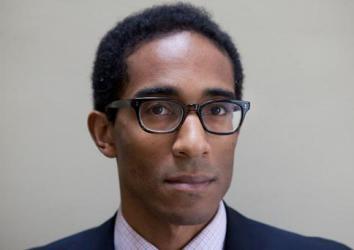Please send your questions for publication to gentlemanscholarslate@gmail.com. (Questions may be edited, or made up and attributed to foreigners.)
Is American football a gentlemanly sport?
—An Englishman in New York

The argument in favor of football as a noble endeavor is best supported by turning to the heroic examples of Vince Lombardi (with his humanistic decency), Jerry Rice (with his tremendous work ethic), and Tom Landry (with his excellent fedora). Now, it is possible to find fault with these legends of game: Even a cursory examination of the idea that “winning isn’t everything; it’s the only thing”—a quote commonly credited to Lombardi, but better attributed to UCLA’s Henry Russell Sanders or USC’s John Wayne—reveals it to be hideously flawed; prioritizing victory über alles, the quote diminishes the importance of fair play, good sportsmanship, and lucrative endorsement deals. Still, the words of Percy Haughton—the Ivy League coach who invented both the hidden-ball trick and the mousetrap—ring true-ish nine decades after their publication: “It has become generally recognized that contestants can make their supreme effort without transgressing rules of gentlemanly conduct.”
The argument for the sport as a barbaric anachronism is best made by the National Football League on Sundays and also, this week, on Thanksgiving. The NFL often seems to exist expressly to prove the truth of an old adage best remixed by Baltimore football legend Henry Blaha, a running back locally famed for his 1961 performance in a Catholic-school Thanksgiving classic. Blaha said, “Rugby is a beastly game played by gentlemen; soccer is a gentleman’s game played by beasts; football is a beastly game played by beasts.” The only flaw with this formula is that actual, literal beasts are not endowed by their maker with the power of speech and, as such, do not record rap albums as pitiful as Deion Sanders’ Prime Time.
It is poor form to press the latter argument on Thanksgiving Day. If, finding yourself among people poking their noses toward gridiron action on the digital hearth, you are revolted by the spectacular violence before you—or by the recent reports from the Dolphins’ locker room, or by the fact that a race is caricatured on the helmets of the Washington team, or by the manifest shortcomings of the current season of Dallas Cowboy Cheerleaders: Making the Team—you should keep your revulsion to yourself. Choke it back like so much creamed corn.
There is a time to stand up for principle and speak truth to power; the period immediately before or after this blessedly ecumenical holiday meal is not that time. I say this as someone who collects Thanksgiving-table anecdotes from people who have broken bread with scholars whose views may seem hostile to the whole turkey-day endeavor. Do you think Peter Singer spends his meal casting murderous glances at meat? Would you suppose that the late Howard Zinn used the occasion to drone on about genocide? No and no.
It is of course permissible to diss a play-by-play man’s toupee or a color commentator’s pallid palaver. As ever, it is not only allowed but encouraged to direct hate speech toward the Cowboys. But only an extremely tedious guest lodges general anti-football objections likely to foment discord.
There exist three important exceptions to the above rule.
1. You are assured that all people in attendance can behave like adults and discuss the moral and ethical complications of professional athletics with the utmost civility. (In which case you may be dining alone.)
2. You are committed to giving a full-on performance as a snot-nosed punk and to proceeding through the day in a full-body sneer. (In which case you’ll want to excuse yourself occasionally to stretch out your back—all that slouching will be arduous.)
3. Somebody gets Theismanned. (In which case all bets are off.)
What does “1st and 10” mean?
—An Englishman in New York
It means that the team on offense is enjoying the first of four opportunities to advance its position by 10 yards or more. When the fourth such opportunity comes around, the team may call out the kicker instead, for one of two reasons, though they might fake the kick, though that’s unlikely, because—hmm.
Decades of attempts to explain American football have taught me that dwelling on special-teams plays only confuses the issue. Indeed, that’s pretty much the only thing that has been taught successfully in these casual tutorials, in which I’ve failed to enlighten such demographic groups as Frenchmen with whom I was friendly and American women with whom I was boyfriendly. (One scarcely bothers trying to explain the game to French women, who just go, “Pffft.”)
The Gentleman Scholar is willing to accept responsibility for these failures, but he’d prefer to convert them, to two-point convert them, into a success. Which is where you come in, dear reader. How would you explain American football to a novice? Please draw upon your resources of clarity, concision, and charm to diagram a conversational play for explaining the game. Keep it under 120 words—one for each yard on the field, inclusive of end zones—and submit your exegesis to gentlemanscholarslate@gmail.com. (Official rules here and submission guidelines here.) The winning entry will be published in time to be misunderstood during the Rose Bowl, and its author will be eligible to receive her choice of a copy of Don DeLillo’s End Zone (in paperback) or a Nerf Turbo Jr. (in green).